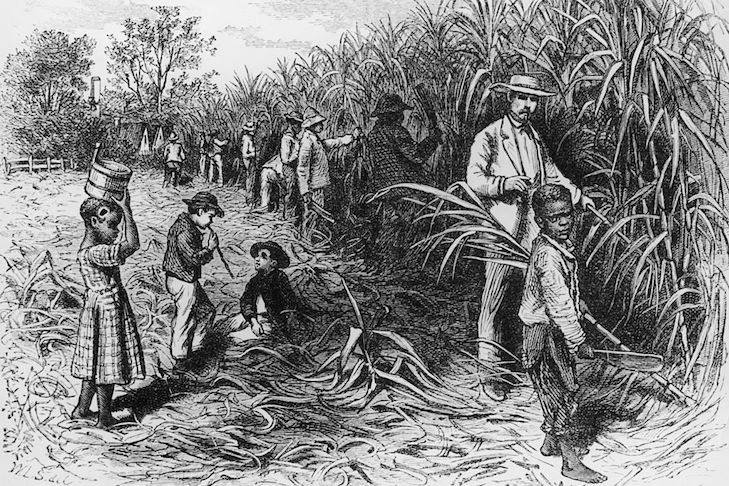Jane Harris’s novels often focus on the disenfranchised: a maid in The Observations, a woman reduced by spinsterhood in the Victorian era in Gillespie and I, and now, a young slave in this third novel. Disenfranchised they may be, but her protagonists don’t lack agency. The narrator of Sugar Money is Lucien, a slave who is barely in his teens and whose voice is startlingly optimistic. In Martinique in 1765, Lucien and his older brother, Emile, are tasked by their French master with returning to Grenada — where they once lived — and smuggling back 42 slaves who are living under the rule of English invaders at a hospital plantation in Fort Royal.
Emile is realistic about the scale of the challenge, but Lucien views it as a great adventure. The brothers, of course, have no choice but to undertake the trip. The power dynamic between them and their master is plain: he views them ‘like he might survey the twitching of two sand-fleas on the shore’. But this is not the slave narrative you might expect: readers bracing themselves for scenes of torture and ill-treatment will initially be surprised. Harris’s great triumph is Lucien’s voice, and a reader needs to embrace the young slave’s confidence and hope in order to enjoy this book.
Sugar Money is based on a true story. On holiday on the island, Harris read Beverley Steele’s Grenada: A History of its People and first came across the story of an enslaved man charged by his masters to steal fellow slaves from their enemy. The historical original embarked on his mission without an accomplice but, having worked on two previous novels with ‘solitary protagonists’, Harris has said she wanted to place close relationships at the centre of this book. One of the most moving aspects of the novel is the relationship between the siblings. Lucien confesses: ‘I found myself too much in simple-hearted awe and adoration of my brother.’ For his part, Emile is consumed by love for Celeste, the woman he had to leave behind in Grenada. His yearning for her in the seven years between him leaving Grenada and returning on this unenviable mission has reached such a pitch that he can no longer bear to hear her name.
In Grenada, the slaves who are to be taken to Martinique express excitement over the trip, anticipating a rosier future. Emile bluntly refutes this. Lucien feels the ‘scars on my back begin to tingle’ as discussion turns to their own late father, the cruellest of masters. It is in Grenada that Harris makes the brutal reality of slavery utterly plain. The risk of her earlier restraint has paid off and the brief, harrowing scenes towards the novel’s climax have an extra power because of it.






Comments